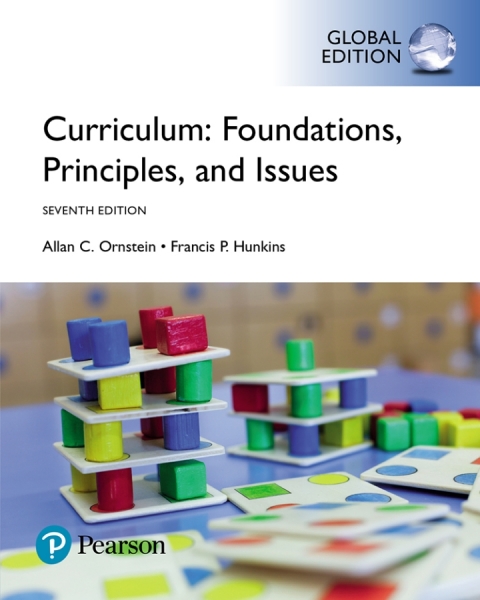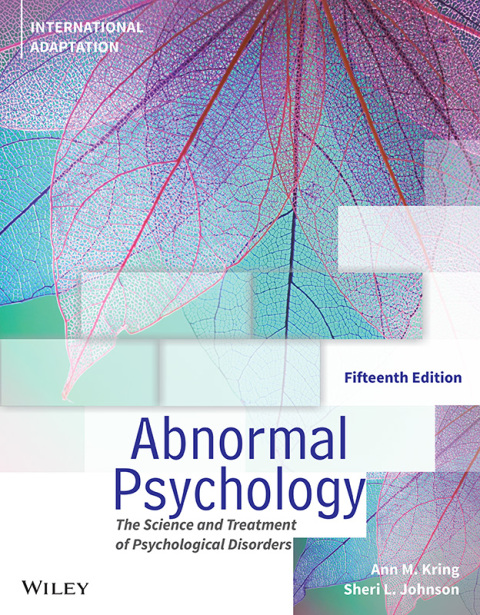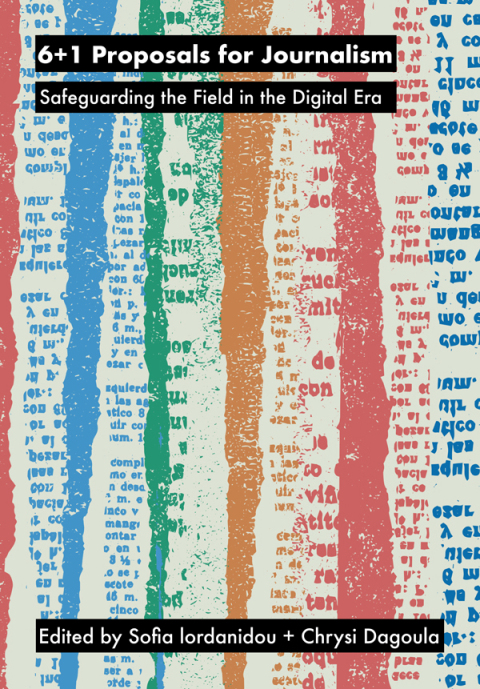Description
Efnisyfirlit
- Title page
- Copyright page
- About the Authors
- Preface
- Brief Contents
- Contents
- Curriculum Tips
- VIDEOS FOR REFERENCE
- Chapter 1 THE FIELD OF CURRICULUM
- Curriculum Approaches
- Behavioral Approach
- Managerial Approach
- Systems Approach
- Academic Approach
- Humanistic Approach
- Postmodern Approach
- Definition of Curriculum
- The Challenges of Definition
- Background Issues for Defining the Field
- Fundamental Questions
- Foundations of Curriculum
- Curriculum Domains
- Curriculum Development
- Curriculum Design
- Planned and Unplanned Curriculum
- Theory and Practice
- From Theory to Practice
- Curriculum Certification
- The Roles of the Curriculum Worker
- The Curriculum Worker’s Responsibilities
- The Student’s Role
- The Teacher and the Curriculum
- The Principal and the Curriculum
- Changing Professional Roles: Standards and Testing
- Conclusion
- Discussion Questions
- Notes
- PART I FOUNDATIONS OF CURRICULUM
- Chapter 2 PHILOSOPHICAL FOUNDATIONS OF CURRICULUM
- Philosophy and Curriculum
- Philosophy and the Curriculum Worker
- Philosophy as a Curriculum Source
- Major Philosophies
- Idealism
- Realism
- Pragmatism
- Existentialism
- Educational Philosophies
- Perennialism
- Essentialism: Reaffirming the Best and Brightest
- Progressivism
- Reconstructionism
- Conclusion
- Discussion Questions
- Notes
- Chapter 3 HISTORICAL FOUNDATIONS OF CURRICULUM
- The Colonial Period: 1642–1776
- Three Colonial Regions
- Colonial Schools
- Old Textbooks, Old Readers
- The National Period: 1776–1850
- Rush: Science, Progress, and Free Education
- Jefferson: Education for Citizenship
- Webster: Schoolmaster and Cultural Nationalist
- McGuffey: The Readers and American Virtues
- 19th Century European Educators
- Pestalozzi: General and Special Methods
- Froebel: The Kindergarten Movement
- Herbart: Moral and Intellectual Development
- Spencer: Utilitarian and Scientific Education
- The Rise of Universal Education: 1820–1900
- Monitorial Schools
- Common Schools
- Elementary Schools
- Secondary Schools
- Academies
- High Schools
- The Transitional Period: 1893–1918
- Reaffirming the Traditional Curriculum: Three Committees
- Harris and Eliot: Two Conservative Reformers
- Vocational Education
- Pressure for a Modern Curriculum
- The Birth of the Field of Curriculum: 1918–1949
- Bobbitt and Charters: Behaviorism and Scientific Principles
- Kilpatrick: The Progressive Influence
- The Twenty-sixth Yearbook
- Rugg and Caswell: The Development Period
- Eight-Year Study
- Tyler: Basic Principles
- Goodlad: School Reform
- Pinar: Reconceptualizing Curriculum Theory
- Freire: From “Banking Concept” of Education to Problem Posing
- Current Focus
- Conclusion
- Discussion Questions
- Notes
- Chapter 4 PSYCHOLOGICAL FOUNDATIONS OF CURRICULUM
- Behaviorism
- Connectionism
- Thorndike’s Influence: Tyler, Taba, and Bruner
- Behaviorist Reinforcement Theory
- Operant Conditioning
- Acquiring New Operants
- Behaviorism and Curriculum
- Cognitive Psychology
- Cognitive Perspective
- The Montessori Method
- Jean Piaget’s Theories
- Piaget’s Influence: Tyler, Taba, Bruner, and Kohlberg
- Developmental Theories: Beyond Piaget
- Bloom: Early Environment
- Lev Vygotsky’s Theories
- IQ Thinking and Learning
- Constructivism
- Brain Research and Learning
- The Impact of Technology on the Brain and Learning
- Problem Solving and Creative Thinking
- Innovation and Technology
- Cognition and Curriculum
- Phenomenology and Humanistic Psychology
- Gestalt Theory
- Maslow: Self-Actualizing Individuals
- Rogers: Nondirective and Therapeutic Learning
- Social and Emotional Intelligence
- Positive Psychology and Mindsets
- Phenomenology and Curriculum
- Conclusion
- Discussion Questions
- Notes
- Chapter 5 SOCIAL FOUNDATIONS OF CURRICULUM
- Society, Education, and Schooling
- Society and Modal Personality
- Social and Developmental Theories
- Changing American Society
- Postmodern Society
- Postindustrial Society: Bits and Bytes
- Postnuclear Family
- New Family Types
- Moral/Character Education
- Moral Conduct and Controversy
- Moral Teaching
- Moral Character
- Performance Character
- Binary Bits and Reading Habits
- The Culture of the School
- Conformity in Class
- Coping and Caring
- Culture of the Classroom
- The Peer Group
- Peer Culture and the School
- Peer and Racial Groups
- Social Class and Academic Achievement
- Global Achievement
- Conclusion
- Discussion Questions
- Notes
- PART II PRINCIPLES OF CURRICULUM
- Chapter 6 CURRICULUM DESIGN
- Complexities of Curriculum Design
- Connecting Conceptions
- Components of Design
- Sources of Curriculum Design
- Conceptual Framework: Horizontal and Vertical Organization
- Design Dimension Considerations
- Scope
- Sequence
- Continuity
- Integration
- Articulation
- Balance
- Representative Curriculum Designs
- Subject-Centered Designs
- Learner-Centered Designs
- Problem-Centered Designs
- Curriculum Design Theoretical Frameworks
- The Shadows within Curricula
- Conclusion
- Discussion Questions
- Notes
- Chapter 7 CURRICULUM DEVELOPMENT
- Technical-Scientific Approach (Modernist Perspective)
- The Models of Bobbitt and Charters
- The Tyler Model: Four Basic Principles
- The Taba Model: Grassroots Rationale
- The Backward-Design Model
- The Task-Analysis Model
- Nontechnical-Nonscientific Approach (Postmodernist, Postconstructivist Perspective)
- The Deliberation Model
- Slattery’s Approach to Curriculum Development
- Doll’s Model of Curriculum Development
- Enacting Curriculum Development
- Establishing Curriculum Teams
- Generating Aims, Goals, and Objectives
- Selecting Curriculum Content
- Selecting Curriculum Experiences
- Selecting Educational Environments
- The Final Synthesis
- Participants in Curriculum Development
- Teachers
- Students
- Principals
- Curriculum Specialists
- Assistant (Associate) Superintendents
- Superintendents
- Boards of Education
- Lay Citizens
- The Federal Government
- State Agencies
- Regional Organizations
- Other Participants
- Conclusion
- Discussion Questions
- Notes
- Chapter 8 CURRICULUM IMPLEMENTATION
- The Nature of Implementation
- Incrementalism
- Communication
- Support
- Implementation as a Change Process
- Types of Change
- Resistance to Change
- Stages of Change
- Curriculum Implementation Models
- Modernist Models
- Postmodernist Models
- Factors Affecting Implementation
- Key Players
- Students
- Teachers
- Supervisors
- Principals
- Curriculum Directors
- Curriculum Consultants
- Parents and Community Members
- Conclusion
- Discussion Questions
- Notes
- Chapter 9 CURRICULUM EVALUATION
- The Nature and Purpose of Evaluation
- Evaluation Questions
- Definitions of Evaluation
- Measurement versus Evaluation
- Approaches to Evaluation
- Scientific, Modernist Approach to Evaluation
- Humanistic, Postmodernist Approach to Evaluation
- Scientific, Modernist Approach versus Humanistic, Postmodernist Approach
- Utilitarian versus Intuitionist Approach
- Intrinsic versus Payoff Approach
- Formative and Summative Evaluation
- Evaluation Models
- Scientific Models, Modernist Models
- Humanistic Models, Postmodernist Models
- Action-Research Model
- Testing
- High-Stakes Tests
- Norm-Referenced Tests
- Criterion-Referenced Tests
- Subjective Tests
- Alternative Assessment
- Human Issues of Evaluation
- Challenges in the 21st Century
- Conclusion
- Discussion Questions
- Notes
- PART III ISSUES OF CURRICULUM
- Chapter 10 INTERNATIONAL SCENES IN EDUCATION
- Education in Particular Countries
- Finland
- Background
- The Uniqueness of Finland
- Finnish Education: Cultural Linchpin
- Ministry of Education
- The Finnish Educational System
- Lessons from Finland
- Australia
- Background
- The Australian Educational System
- Teacher Education
- Lessons from Australia
- China
- Background
- The Chinese Education System
- State Education Commission
- Teacher Education
- Lessons from China
- Singapore
- Background
- The Singapore Education System
- Primary School Education
- Secondary School Education
- Post-Secondary Options
- Teacher Education
- Lessons from Singapore
- Republic of South Africa
- Background
- The South African Education System
- The Department of Education
- Teacher Education
- Lessons from South Africa
- Conclusion
- Discussion Questions
- Notes
- Name Index
- A
- B
- C
- D
- E
- F
- G
- H
- I
- J
- K
- L
- M
- N
- O
- P
- R
- S
- T
- U
- V
- W
- Z
- Subject Index
- A
- B
- C
- D
- E
- F
- G
- H
- I
- K
- L
- M
- N
- O
- P
- Q
- R
- S
- T
- U
- V
- W






Reviews
There are no reviews yet.